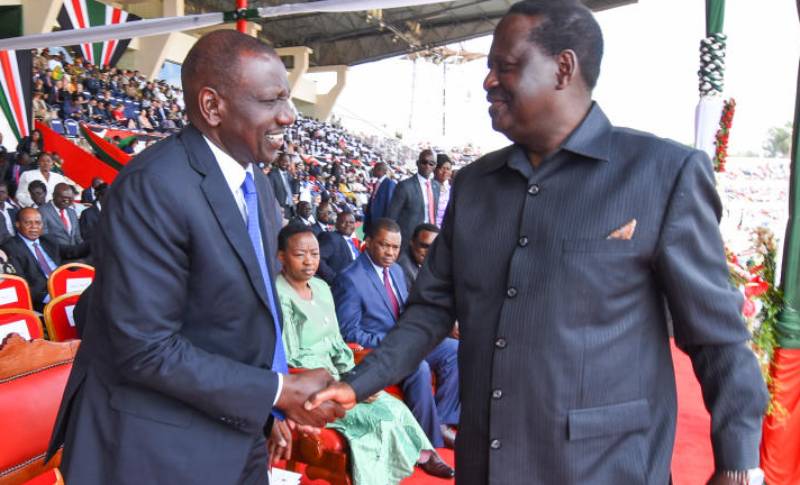×
The Standard e-Paper
Kenya’s Boldest Voice

Deputy President William Ruto and former Prime Minister Raila Odinga. [File, Standard]
The paths between political arch rivals – Deputy President William Ruto and Opposition leader Raila Odinga – are narrowing every day, with every indication that they may play the same side in the impending referendum campaigns.